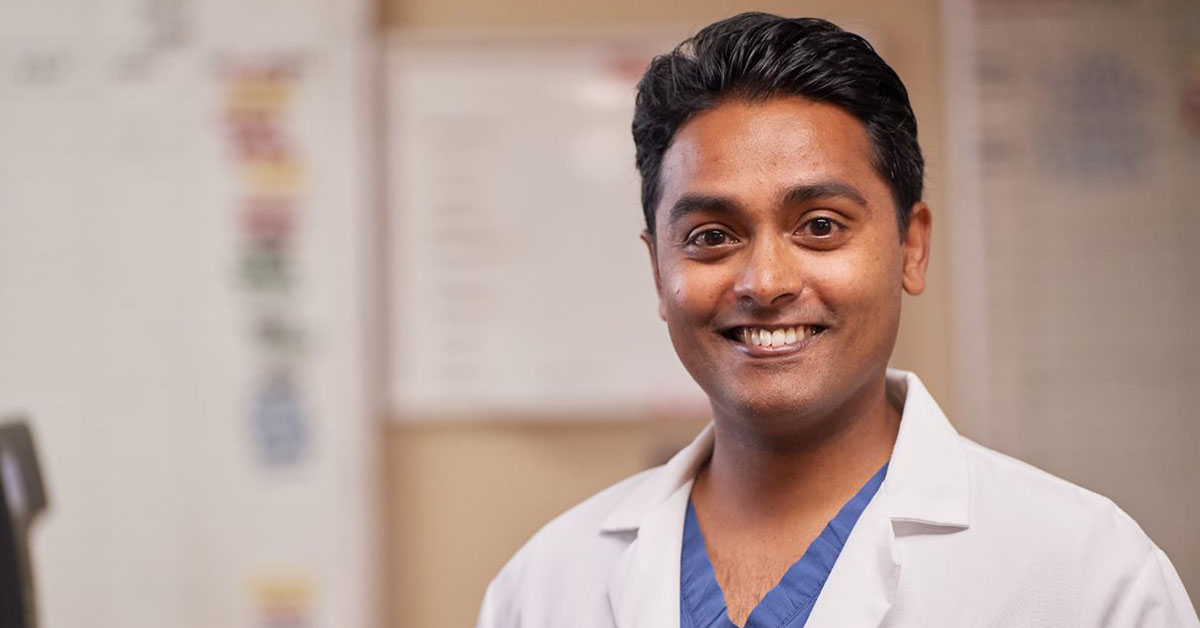
PHILADELPHIA (May 14, 2021)—In early 2020, Sanjay S. Reddy, MD, FACS, surgical oncologist and co-director of the Marvin & Concetta Greenberg Pancreatic Cancer Institute at Fox Chase Cancer Center, co-authored an article examining the paradox that healthcare providers were facing. Should they continue to treat cancer patients as they normally would, which might increase the risk of contracting COVID-19? Or should they try alternative strategies to treatment, which could lead to worse cancer-related outcomes?
One year later, Reddy concludes that, at least for pancreatic cancer patients, it’s safe to continue standard-of-care treatment despite COVID-19. If he and his team determine a patient needs chemotherapy, it’s safe to administer chemotherapy. The same goes for surgery.
“Of all the pancreatic resections I’ve done in the year since COVID, I have had zero patients develop COVID, at least during their perioperative course,” said Reddy, who wrote the follow-up article with other Fox Chase physicians who specialize in pancreatic cancer. “Ultimately, I do not believe that cancer care deviated much in a longstanding way due to COVID.”
This is not to say that the process of providing and receiving treatment looks the same as it did before COVID. Per guidelines from the Centers for Disease Control and Prevention, all patients and providers must wear masks and social distance, and Fox Chase continues to enforce no-visitor policies in order to limit exposure.
Another change has been the adoption of telemedicine in cancer care. Virtual visits have increased dramatically since the start of the pandemic, and Reddy doesn’t see these going away.
Although a medical oncologist may need to see a patient in person to assess their toxicity level during chemotherapy, visits where the provider is reviewing a scan or test results with a patient can be conducted using a virtual platform. This is not only more convenient for the patient, but it further limits their exposure to COVID-19 and other communicable diseases.
Limiting exposure for both patients and staff can now be achieved through precautions that, for many people, have become routine: wearing masks, social distancing, and temperature screenings. However, at the beginning of the pandemic, much less was known about how COVID-19 was transmitted, so limiting exposure with those tools was a key factor in providers’ decisions about treating their patients.
Last spring, Reddy, and other surgeons at Fox Chase met on a weekly basis to review patient cases and factor in the state of the pandemic, local COVID-19 numbers, and the necessity of the proposed procedure to decide how to proceed. They also had to consider resource utilization such as availability of ventilators, support staff, and inpatient space.
“At that time during the pandemic, an operation may have taken a ventilator away from someone suffering from COVID,” said Reddy.
One year later, Reddy credits all of the calculations and precautions that Fox Chase took with helping to bring things back to the “new normal.” “We were really stringent in terms of what we did and didn’t do, and limited patients in terms of exposure risks. This careful approach to the pandemic allowed physicians to provide cancer care without interruption.”
The paper, “Pancreatic Cancer in the Era of COVID-19 Pandemic: Which One is the Lesser of Two Evils?,” was published in World Journal of Clinical Oncology.